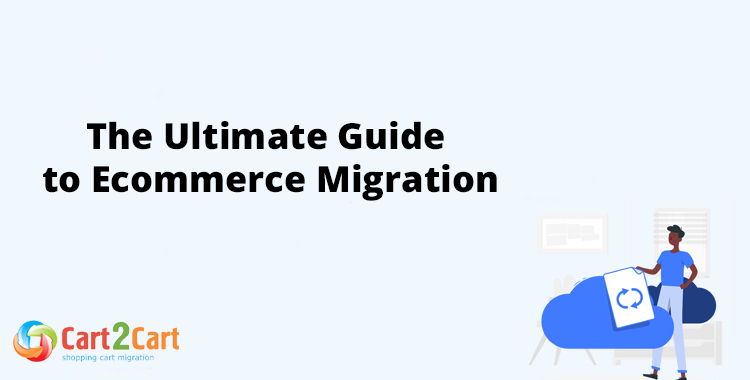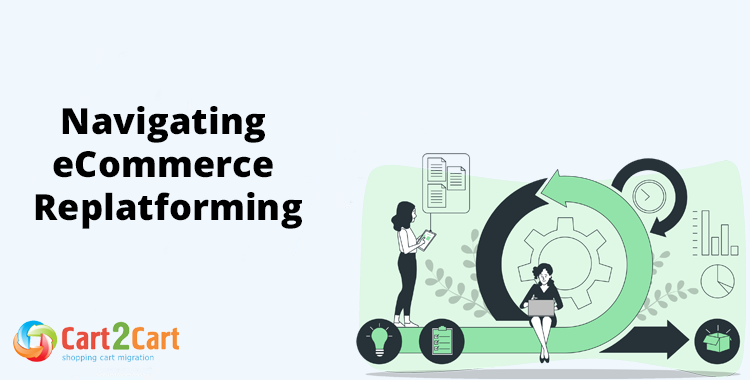TomatoCart Migration
Looking for a seamless TomatoCart Migration? Cart2Cart offers a fully automated, secure, and fast solution to migrate from TomatoCart, ensuring a smooth transition to a new platform in just a few hours. With Cart2Cart, your TomatoCart Migration is guaranteed to have zero downtime for your existing store, preventing any disruption to your sales. We specialize in comprehensive data transfer, including products, customers, orders, SEO URLs, and more, ensuring no critical data is left behind. Trust Cart2Cart, the leading eCommerce migration service, to handle your TomatoCart migration with expertise and precision, providing a secure and reliable path to your new online store.Supported versions: TomatoCart 1.1.8.6.1

How to Migrate to TomatoCart
This step-by-step guide details how to securely migrate to TomatoCart from any other e-commerce platform using Cart2Cart, ensuring complete data integrity for your online storefront.
- Register and Initiate: Create a Cart2Cart account to begin your platform switch. This initial step is free and takes only a minute.
- Connect Your Source Store: Provide the credentials for your current platform to allow secure API access for the data transfer.
- Connect TomatoCart Target Store: Download the Cart2Cart Connection Bridge and upload it to your TomatoCart store's root folder using an FTP client. This establishes a secure connection for the data import.
- Select Data and Options: Choose which data entities to move, including products, SKUs, and customer orders. Configure crucial options like 301 redirects to preserve your SEO rankings.
- Run a Free Demo Migration: Launch a free test transfer to move a limited set of your data. This allows you to check the results directly in your new TomatoCart store before the full replatforming.
- Launch the Full Migration: Once satisfied with the demo, start the full migration. The process runs on our servers, ensuring no downtime for your business.
Pro-Tip: To establish the data connection, you will need to install the Cart2Cart TomatoCart Migration module on your store. Be aware that multi-store features and SEO options for blogs have migration limitations.
Automated migration
Just set up the migration and choose the entities to move – the service will do the rest.
Try It Free
Data Migration Service Package
Delegate the job to the highly-skilled migration experts and get the job done.
Choose Package
What data can be migrated from/to TomatoCart
-
Products
-
Product Categories
-
Customers
-
Orders
Choose all the extra migration options and get 40% off their total Price
We’re committed to protecting our customers’ data security. Check out our Security Policy
The Cart2Cart service has all the necessary functionality to migrate store databases on TomatoCart of any size and complexity. Below are the most popular migration directions among our customers:
Help Center
Let’s figure out everything about TomatoCart migration through
Cart2Cart.
Discover our checklist, related articles, and answers on frequently asked questions.

 June 7, 2023
June 7, 2023 The Ultimate Guide to eCommerce Migration: How-To Directions and Best Practices
Read full articlePay only for what you migrate - the cost depends on the number of records to be moved
Calculate Your TomatoCart Migration Price Instantly
Use our tool to get an instant, transparent estimate of your TomatoCart migration cost, tailored precisely to your store's needs. This personalized TomatoCart migration pricing helps you plan effectively, ensuring you understand the full TomatoCart migration price with no hidden fees.
The TomatoCart Monthly Pulse: A Study in Legacy Platform Stability
In an e-commerce landscape defined by relentless innovation and the rapid expansion of SaaS giants, it is prudent to analyze not only the disruptors but also the platforms that represent stability and a different value proposition. This month's pulse on TomatoCart is not a story of explosive growth, but a more nuanced narrative of a mature, open-source platform navigating the modern era. For business leaders, this analysis offers a look into the state of legacy systems, the importance of community stewardship, and the specific niche where such platforms continue to provide value.
Industry Footprint and Niche Positioning
TomatoCart's market share remains a fractional percentage, a status that has been consistent for several years. It does not compete for enterprise accounts or high-growth startups against the likes of Shopify or BigCommerce. Instead, its strategic position is now firmly established as a specialist tool for a self-reliant user base. Its appeal lies with small businesses possessing in-house PHP development talent or those operating on extremely lean budgets who require full source-code control. This past month saw no significant shift in this positioning; rather, it reinforced TomatoCart's role as a stable, if static, option for merchants who prioritize sovereignty over a managed service ecosystem.
Core Architecture & Maintenance Posture
While the core TomatoCart codebase has not seen a major version release recently, the focus within its user community this month has been on environmental optimization. Discussions in developer forums have centered on ensuring compatibility and performance on the latest stable PHP versions (such as 8.1) and optimizing server-side caching mechanisms like Redis. The "so what?" for a merchant running on TomatoCart is significant: platform performance is now a function of hosting infrastructure and sysadmin expertise, not platform-led updates. This places the burden of speed and reliability squarely on the merchant, a trade-off for the platform's zero-cost licensing model.
The Legacy Extension Ecosystem
The TomatoCart extension marketplace is best described as mature and stable, rather than growing. This month saw no notable new third-party integrations. For decision-makers, this signals a critical strategic consideration. The platform's extensibility relies on a finite library of existing modules and the ability to custom-develop new features. Unlike modern app stores that offer a constant stream of innovation, the TomatoCart ecosystem provides a set of foundational tools that are known quantities. The advantage is a lack of feature bloat; the risk is the widening gap in access to modern services like advanced analytics, machine-learning-based recommendations, and headless commerce APIs.
The Enduring Value of a Streamlined Experience
In lieu of a new flagship feature, our analysis turns to TomatoCart's most defining characteristic: its ExtJS-powered administrative backend. This rich internet application (RIA) was revolutionary at its inception, providing a desktop-like experience in a browser. Today, its primary value is its speed and simplicity for core tasks like order and product management. For merchants overwhelmed by the multi-layered dashboards of modern SaaS platforms, TomatoCart's focused interface remains a compelling feature. It solves a fundamental problem: reducing the cognitive load for essential daily operations, allowing merchants to manage their store efficiently without a steep learning curve.
Community Vigilance and Security Patching
This month, a minor cross-site scripting (XSS) vulnerability was identified and patched, not by a corporate security team, but by a long-standing member of the open-source community. The patch was quickly circulated through GitHub and community forums. This event perfectly encapsulates the security posture of TomatoCart. For a business leader, this is a double-edged sword. On one hand, it demonstrates an engaged community dedicated to the platform's integrity. On the other, it underscores a reliance on proactive self-policing rather than enterprise-grade, guaranteed security protocols and compliance certifications like SOC 2. Trust in the platform is synonymous with trust in its community.
Foundational Global Commerce vs. Modern Demands
TomatoCart has long-standing foundational support for multiple currencies and languages, a core strength of its architecture. However, the platform saw no updates this month to address the complexities of modern cross-border trade. It lacks the integrated, automated solutions for calculating international duties and taxes at checkout or managing complex regional shipping logistics that are now standard on major platforms. This means that while TomatoCart can technically serve a global audience, the operational burden of internationalization falls entirely on the merchant, limiting its viability for businesses looking to scale their global footprint aggressively.
Analyzing the User Profile: The Self-Reliant Artisan
While no major brands migrated to TomatoCart, we can analyze the profile of a business that would realistically choose this platform today. Consider a small, specialized retailer—for instance, a seller of rare electronic components—with a skilled developer-founder. They are migrating from an even older, unsupported osCommerce installation. For this merchant, TomatoCart is a significant upgrade, offering a better admin panel and a more modern (albeit legacy) codebase. They chose it not for its ecosystem, but for its unfettered access to the code, allowing them to build a highly specific inventory management integration that would be cost-prohibitive or impossible on a SaaS platform. This illustrates the platform's enduring, albeit narrow, appeal.
Source: Analysis based on public data from the TomatoCart GitHub repository, community forums, and historical market positioning data.
Just set up the migration and choose the entities to move – the service will do the rest.
Try It FreeDelegate the job to the highly-skilled migration experts and get the job done.
Choose Package
















